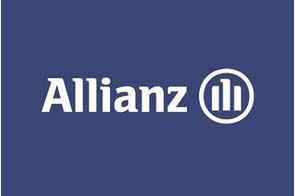Latest News
COVID-19, cyber attacks are top business risks in 2021 for Nigeria -Allianz

News Highlight
Globally, the Allianz Risk Barometer 2021 shows that BI, pandemic outbreak and cyber incidents are this year’s top business risks, in that order.
The Allianz Risk Barometer 2021, the 10th annual survey on corporate risks, was released on Tuesday by Allianz Global Corporate & Specialty (AGCS). The Risk Barometer is based on responses from over 2,700 risk management experts from more than 92 countries and territories around the world.
According to the survey, COVID-19 tops the ranking of major risks for businesses in Nigeria this year (with 38 per cent of the respondents highlighting the pandemic as a risk), followed by cyber incidents, which moved up from 8th position in the previous year's ranking to second place in the latest risk barometer. 32 per cent of the respondents identified cyber incidents as a business risk this year, according to the latest survey findings sent to Financial Nigeria by AGCS.
Ranking a close third and fourth are macroeconomic developments – such as inflation, deflation, commodity price increase and monetary policies – and business interruption (BI), respectively. While macroeconomic developments saw 31 per cent responses, 30 per cent of the respondents said BI, including supply chain interruption, is among the top business risks in Nigeria.
AGCS, a global corporate insurance carrier and Allianz Group's key business unit, said the ongoing pandemic shows that extreme global-scale BI events are not just theoretical, but a real possibility, causing loss of revenues and disruption to production, operations and supply chains. 59 per cent of respondents highlighted the pandemic as the main cause of BI in 2021, followed by cyber incidents (46 per cent) and natural catastrophes and fire and explosion (around 30 per cent each).
“The consequences of the pandemic – wider digitalisation, more remote working and the growing reliance on technology of businesses and societies – will likely heighten BI risks in coming years,” said Philip Beblo, expert in AGCS’s global property underwriting team. “However, traditional physical risks will not disappear and must remain on the risk management agenda.”
Apart from the top four risks in 2021, other major risks for businesses in Nigeria include political risks and violence, which rose to fifth place this year compared to 9th position in the 2020 risk barometer. Theft, fraud and corruption dropped from second place to sixth year-on-year, while fire and explosion retained its 7th position.
Changes in legislation and regulation dropped from fifth to 8th place year-on-year. The 9th and 10th most important business risks in Nigeria this year are loss of reputation or brand valuation (for example public criticism) and market developments – such as market fluctuation, volatility, new entrants/intensified competition and mergers and acquisitions (M&A).
Globally, the Allianz Risk Barometer 2021 shows that BI, pandemic outbreak and cyber incidents are this year’s top business risks, in that order. AGCS said these are a trio of COVID-19-related risks.
“Business interruption, pandemic and cyber are strongly interlinked, demonstrating the growing vulnerabilities of our highly globalized and connected world,” said Joachim Müller, CEO of AGCS. “The coronavirus pandemic is a reminder that risk management and business continuity management need to further evolve in order to help businesses prepare for, and survive, extreme events.”
AGCS said prior to 2021, pandemic outbreak as a risk had never finished higher than 16th in the 10 years of annually reporting the top corporate risks. However, in 2021, pandemic outbreak is the number one risk in 16 countries, including Nigeria, and among the three biggest risks across all continents. This shows it was always an underestimated risk.
Catharina Richter, Global Head of the Allianz Cyber Center of Competence at AGCS, noted that the digitalisation surge driven by the pandemic has created opportunities for intrusions with new cyber loss scenarios constantly emerging.
“Attackers are innovating using automated scanning to identify security gaps, attacking poorly secured routers or even using ‘deepfakes’ – realistic media content modified or falsified by artificial intelligence,” said Richter. “At the same time, data protection and privacy regulation and fines for data breaches continue their upward trend.”
Related News
Latest Blogs
- What is most important for Nigeria in 2026
- Restoring asset declaration as a tool of public accountability
- Tackling antibiotic resistance through safer food systems
- Big government, little governance
- What will matter in Nigeria in 2026
Most Popular News
- NDIC pledges support towards financial system stability
- Artificial intelligence can help to reduce youth unemployment in Africa – ...
- FRC Chairman commends NDIC for prompt remittance of operating surplus
- Pan-African nonprofit appoints Newman as Advisory and Executive Boards Chair
- UN adopts new consumer product safety principles
- Abebe Aemro Selassie to retire as Director of African Department at IMF









